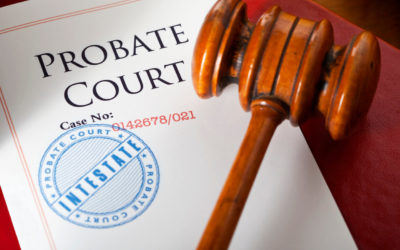If you relocate, do you need to update your will in Maine?

Written by Jesse Bifulco
If I relocate, do I need to update my will in Maine?
If you relocate to any state, your last will may need a remake. If you wondered if your will was valid in Maine, this article is for you. If you recently moved to Maine or if you plan to retire in Maine, should you update your will in Maine ? Read on, and you will find out the answer. But more than that, you will learn about the best way to protect your assets, and prevent family conflict.
For years, at the end of every vacation, or weekend getaway, or summer, the two of you would say, “wouldn’t it be great if we lived in Maine?” Now that you’re here, there are some legal issues you should address when you update your will in Maine.
Three Most Important Issues to Analyze
This article will show you the three most important things to look at when reviewing your will.

A Will is a legal document that can govern what happens to your property when you die. Of course you should have a Will. But another issue to consider is that you may need estate planning legal documents other than a will. Many people update their will when they relocate to Maine.
Why Listen to Me?
I have reviewed many wills for folks who have moved to Maine. As an estate planning attorney for over 23 years, I’ve seen what can go wrong. I’ve helped thousands of clients.
What is a Will?
A will or last will and testament is a legal document. An estate plan is more than a legal document. A plan contains your legally enforceable instructions. The reason a will is NOT a plan, is because it only instructs as to what happens in death. You should have legally enforceable instructions that cover more than that. You can call that your “rule book.” Your rule book is about you and your property not just after you die, but if you’re alive and need to rely on someone else. Wouldn’t you rather decide who you trust during a period of incapacity than a Court? That’s the difference. By making a plan, you decide. Without the proper legal documents, you are forcing someone to go to Court. Maine has its own particular rules. Maine’s law is different from other states.
If you have recently moved to Maine, chances are you haven’t made a Maine will yet.
Top Four Reasons To Make a New Will or Update Your Will When You Move to Maine
- Your family may live at a distance.
- Your existing Will may not work any more.
- A well drafted and maintained estate plan will avoid costly legal proceedings in an emergency.
- A good estate plan gives peace of mind.
New Home New Relationships
You bought your Maine dream house, saltwater farm, lake cottage, or Greek revival mansion, and now you’re officially a resident of Maine. There are some important new relationships you need to start.
I am not referring to a new Rotary or bridge club. You will definitely need a new plumber, electrician, and carpenter. But what about an estate planning lawyer? The estate planning team should really consist of a CPA, Investment Adviser, and an Insurance Agent. Its worth the peace of mind to spend a little time making sure your Will and other estate plan documents will work in Maine. But do you need a new lawyer when you move to Maine?
Even if you have a lawyer in another state, or had a lawyer help you buy your house, you still need a Maine estate planning lawyer to review your Will.
Attend our free estate planning workshop.
Moving to Maine…Finally!
If you move to Maine, or any other state, you should review your Will.
A sign in a shop window in Camden reads “I wasn’t born here, but I got here as fast as I could.” That sums up the sentiment of many people who move to Maine. Maine is a special place. But, did you realize that when you relocate to another state, you may have to update your Will?
When you move to Maine it is a good opportunity to update your entire estate plan. That means not just your Will, but also, your power of attorney, your healthcare proxy, your living will, and your trust.
A Maine Licensed Attorney
I happen to be licensed in Maine and New York.
Every state has its own laws about wills, trusts, powers of attorney, living wills, and healthcare proxies. Maine is no exception. Maine law is different from the law in other states. Also, Maine licenses its own attorneys to practice in Maine. Your old lawyer may not be licensed to practice in Maine. Moreover, not every lawyer is an expert on every area of law. As a consumer you need to realize that like any other complex service, there are vast differences between the various providers.
Estate Planning is Not Like Other Law
Your real estate lawyer probably does not spend scores of hours every year learning and improving upon the latest estate planning techniques.
An estate planning lawyer can update your Will to make sure it complies with Maine law. But more than that, an estate planning lawyer will review your estate plan to see if it should be updated when you move to Maine. Read on to see how, in many instances a simple Will can cause far more expense and family conflict than another estate planning tool. Also, we tell you the three most important issues to review to see if your Will is valid in Maine.
It’s Too Late to Make Estate Planning Documents in an Emergency
Your estate plan is like the airbag in your car. You want to make sure it works without getting into an accident. How do you do that? By bringing your car into the shop for scheduled maintenance. Well, you should do the same thing with your estate plan. But what service provider should you use? Would you bring your Tesla in to a Chevy dealer for service? It’s the same with an estate plan. If you’re going to sue someone, you go to a personal injury lawyer. If you want to know the best way to make an estate plan, you go to an estate planning attorney.
Will your estate plan work in Maine? Penbay Estate Planning Law Center can answer that question for new Maine residents.
Top Rated Free Workshop
We offer a special estate plan review for people who have relocated to Maine from another state. We can review your will and other estate plan documents. Our LifeCounsel® Relocation Review(sm) is a unique system designed to ensure that your estate plan will operate as intended when it is needed. In this article we outline the law of Wills in Maine. We also point out the reasons why probate can be so expensive. But more than that, we tell you how you can plan against vulnerabilities to asset loss, and family conflict.
You can start your own self-analysis by using our three review factors. When you relocate to Maine you should review the these Will review factors. The LifeCounsel® Relocation Review ranks your estate plan on a scale based on three components. We review your out of state Will based upon 1. Maine State law compliance, 2. Asset Protection, and 3. Family Conflict Avoidance.

The 3 MOST important factors when reviewing your will are 1. Maine State law compliance, 2. Asset Protection, and 3. Family Conflict Avoidance.

Does your Power of Attorney work in Maine? When do you want to find out?
Maine state law Compliance for Wills
First, we review out of state wills, trusts, powers of attorney, healthcare proxies, and living wills, to determine if they comply with Maine state law. If your documents won’t work in Maine, they won’t work. Once clients learn the benefits of a properly drafted and maintained estate plan most people choose to make more sophisticated documents. But every plan should have the basics. The basics include a Will, Power of Attorney, Advance Health Care Directive, and a medical records release.
Maine Will Statute
Here is the Maine law of making a will:
Maine law provides that any person of “sound mind”, and over age 18 (or an emancipated minor) can make a Will. A Will states who the Will-maker is, who is going to be in charge of carrying out the instructions in the Will – called a “Personal Representative”, and who gets what is left – called the “beneficiaries”.
Must the Will Be in Writing, Must it Be Signed?
Generally, to be valid in Maine a Will must be in writing and signed by the Will-maker. The Will can also be signed by someone else. That is meant to help those who need help signing their name. But be careful to comply with the specific provisions for such a signature. The law provides that someone else can sign the Will-maker’s name if it is done in the Will-maker’s conscious presence and by the Will-maker’s direction.
Must Maine Wills Be Witnessed to be Valid?
In addition, every Will needs to be signed by at least 2 witnesses. These 2 individuals, each of whom must sign within a reasonable time after the individual witnessed either the signing of the Will or the Will-maker’s acknowledgment of that signature or acknowledgment of the Will.
Is it a Good Idea to Make a Will Without a Lawyer?
Got all that? Did you follow the requirements I set out above? Did it make sense? Although the law sounds simple, and it is common sense, why take a chance with something so important as your estate plan to DIY it?
Should You Do It Yourself?
If you’re moving to Maine one thing you should know is that people here respect doing it yourself. But maybe a will review is something you should NOT DIY. People call and ask me this all the time. They’ll say, I made a Will. What do I need to do? Do I really need a lawyer? There is a person in a nearby town who teaches a class how to make your own Will. With all due respect to Maine thrift and know-how, there are some things you should not DIY.
The reason I concentrate on estate planning rather than the general practice of law, is that it is complicated. Teaching someone to make a Will is not doing them a service. There is value in the knowledge and experience of good counsel. For instance, telling people what problems can arise and how to avoid them is a better approach. Knowing the rules of the game is not the same as knowing the right strategy to win the game. When you relocate to Maine, you should adopt a strategy to win, not just review your Will. In our workshop, you learn the traps for the unwary. Sure a simple Will can be enough. But it can also cost you hundreds of thousands of dollars if things don’t go exactly as planned.
I use a metaphor to explain the limits of a Will. It is like aiming a gun at a target. The target is across the street. The gun will go off any time between now and eighteen years from now. What is the chance the gun will hit the target? That is a Will.
The Three Biggest Shortfalls of Maine Wills
-
- Wills do nothing to protect your assets
- Wills do nothing to protect you while you are alive
- Wills are difficult to change
But what if I’m lost on a mountain in Maine?
There are no witnesses available. Can I make my Will then? Yes, you can make a valid Will even if you don’t have any witnesses around. But here’s a tip: don’t type it. Maine recognizes what are called holographic wills. Holographic wills are required to be in the handwriting of the Will-maker. You can offer evidence that portions of the Will are not in the Will-maker’s handwriting. But once again, why take a chance?

Written by Jesse Bifulco
Review Your Will for Asset Protection in Maine
When you move to Maine you should review your estate plan for asset protection. Asset protection laws vary from state to state. These laws deal with issues such as – when can a person protect their property from creditors? What rights can they reserve in transferred property? When are they eligible for for nursing home Mainecare coverage? Can a creditor force a distribution from a corporate entity when a shareholder owes them money?
Knowledge is Power and Peace of Mind
When we do a relocation review of someone’s Will we look at their estate plan’s level of vulnerability to loss of wealth. While many people are aware of some of the risks of loss of wealth, many do not realize all the potential sources of loss of assets. You should consider not just potential nursing home costs, but also expensive court proceedings, and the cost of opportunists taking advantage during a period of vulnerability. A good estate plan can plan against these potential sources of loss.
Asset protection is important because if you lose your assets, there is nothing to plan for. That means that during your life, and after you’re gone, you can ensure that your property is used for those you care about (including you). In this part of the review we look at the most likely sources of asset loss based on your unique family situation.
For instance, rental real estate is one form of potential risk and liability. A motor boat is another form of possible liability. Also, there are potential losses that can occur due to the high cost of assisted living, or nursing home care.
Assess for Your Own Personal Concerns
One family may have very different concerns about asset protection than another.
We assess the possible vulnerabilities for you, your spouse, and your children, and other potential beneficiaries. We analyze your exposure to estate taxes, long term care costs, creditors and other life risks. Once we identify the risks, you rank the risk on your personal level of concern. Once we know what risks you are concerned about, we can suggest techniques to reduce or eliminate them. Here’s a hint – most of the time the techniques include more than just a simple Will.

Reviewing Your Will for Family Conflict
The last part of the estate plan review consists of assessing if your plan will cause unnecessary family conflict. A good plan not only preserves your assets but prevents family conflict. Our mission at Penbay Estate Planning Law Center is to help our clients make personalized estate plans that preserve family wealth and prevent family conflict. Based on 24 years of experience, we examine your estate plan for sources of family conflict. There are techniques in estate planning that are specifically designed to incorporate your wisdom and authority into the documents. These techniques have been developed over many years based on actual litigated family conflicts.
Once we identify these weaknesses in your estate plan, we suggest how you can fix them. We tell you how to comply with Maine state law, get asset protection, and avoid potential future family conflicts. Once our LifeCounsel® Relocation Review(sm) is complete, you will know if your plan Will work as you intended it to, or if you need to update it. We also tell you how much it will cost to get a LifeCounsel® estate plan that incorporates your unique family situation to preserve your family wealth, protect you and those you care about, prevent family conflict, and, in short, give you peace of mind.
If You Comply with Maine Law of Wills is That Enough?
Maine law requires two witnesses for a Will to be valid. In the state of Maine, if a Will is valid where it was made, it is valid in Maine. However, even though your Will may be valid, it may be difficult to probate your Will if it was made a long time ago in another state. Your witnesses may be difficult to find. Complications regarding probate can add expense and delay to your will proceeding.
Should You Avoid Probate in Maine?
A more sophisticated approach is to create a trust. Trusts do not require probate. A properly drafted and funded Trust will work regardless of what state you are in. Also, trusts are the only estate planning document that will allow you to make specific instructions about how your property is to be managed both while you are alive, and after you’ve passed away. A Will, even a Maine Will cannot do that.
What Does “Sound Mind” Mean When Making a Will in Maine?
Here are the rules for making a Will in Maine as of the original publication of this article. In Maine anyone over age 18, and legally emancipated minors can make a Will, but only if they are of sound mind when they do it. That is an important distinction for two reasons. One reason is that if you don’t make a Will, and then lose your marbles, it’s too late to make a Will. The other reason is that trying to prove unsound mind is one way to contest a Will. If you want to make sure that your Will cannot be upset after you’re gone, you should make sure that it was clear you had a “sound mind” at the time you made the Will.
Other Maine State Rules for Estate Plans
Other state specific provisions in Maine include the Power of Attorney. In Maine a Power of Attorney requires specific statutory notice language. Without that language the Power of Attorney may not work. This language is specific to Maine, so if you have a Power of Attorney that you made in another state, chances are it is not valid in Maine. Without a valid Power of Attorney, in an emergency, your spouse, or kids may be forced to bring a Guardianship Proceeding to be appointed your guardian. If you don’t have a valid Maine Power of Attorney, you should be aware that there are certain asset protection techniques that the Maine Probate Court cannot permit your Guardian to use. That means that if you do not have a properly drafted and funded trust agreement, or a specifically drafted Maine power of attorney, your spouse or adult children cannot take actions to protect your assets from nursing home costs.
Every Estate Plan Is Different
But you should plan against more than the possibility of nursing home costs. Remember, a properly drafted and funded trust can help you avoid family conflict as well as protect your property during a time of personal vulnerability. Even though a Power of Attorney is a useful emergency document, it is no substitute for a trust. The reason is, that a Power of Attorney cannot contain all the instructions that a trust can. A Power of Attorney simply delegates powers to your agent. It does not instruct your Agent how to use those powers. For instance, should your Agent transfer property to protect it? Or should they spend it to maintain you in your residence? Can they set aside some of your assets for your children, or spouse in an emergency? How should they manage the property? All these specific instructions can be included in a properly drafted and maintained trust.
Does Maine Law Require Probate of Wills?
Maine law requires a Will to be probated in order to be effective. According to statistical data from our office, probate costs can range wildly. While it is illegal to charge a percent of the estate to probate your Will in Maine, using percentage as a measure of the cost is useful to show what it could cost. Probate can cost as little as less than a percent of the value of your estate, all the way up to 20 or even 30 percent. How can probate cost so much? There are many reasons why probate could be expensive.
Here are the top reasons why probate costs could be very expensive:
#1 Will Contests
The number one reason why probate can be expensive is Will Contests. Remember the statute states that you need to be of “sound mind” when you make a will. That opens the door for a will contest. There are many reasons heirs contest a Will. Quite often the contestant is an heir who thinks that another heir took advantage of a relationship with the deceased.
In laws, Am I Right?
Or perhaps it is the spouse of that heir, an in-law of the decedent who spurs their wife or husband on, now that they don’t care that you’ll know their true feelings. It doesn’t matter if the will contest is brought about by a child or a surviving spouse, the Judge does not know if their claim is valid when they come into court. In most instances the case must undergo a certain amount of pretrial disclosure before being resolved. Pretrial disclosure is very expensive. In Maine, the law states that if there is probable cause to contest your will, the contestant cannot be punished for contesting your will.
#2 What Do You Own?
The number two top reason why probate can be expensive is if the estate owns a business. If the person who died ran the business or was a very important part of the business once they die the business is in immediate jeopardy. It is no exaggeration to state that a timer starts to run when a business owner dies and every minute there is less chance of the surviving spouse, or kids getting the fair value of that business. Continued Operation of a Business After Death of Owner
This is a very important thing to understand. If you run a business or own a business, if that business is a significant portion of the value of your estate a will simply isn’t good enough. The reason is, that to avoid the loss of value of that business your heirs, or your surviving spouse will need to be able to act if you die without waiting on a Court. Some people think a Power of Attorney will allow their spouse or trusted adviser to run their business if they die. That is simply not true. A Power of Attorney ends at death. You can’t be the Agent under a Power of Attorney in Maine, if that principal has died.
Need to Pay Estate Taxes
If you die owning a significantly valuable business, your estate may have to pay estate or inheritance taxes on the value of that business after you die. Those taxes typically have to be paid within nine months. As any business owner will tell you, what the IRS values their business at, and what someone would pay for it – even if they can find a buyer within nine months, can be very different numbers. The problem is that if your business is not liquid, then your heirs or surviving spouse may be forced to submit to a fire sale or borrow at high interest rates to pay the IRS or state of Maine after your die. Add to that problem the fact that you were the one who ran the business. Now in order to recoup the money, someone needs to successfully run the business, or sell it for a premium that buyers just won’t be willing to pay knowing that that the key person has died.
What Kinds of Business
A simple will puts your business in jeopardy. Many people don’t realize that they have a business. If you die owning income producing assets, there are complications that need to be addressed in order to preserve the value of that asset. It doesn’t matter if the business is rental real estate, or a stock portfolio, or a CPA practice. If you have co-owners or partners, it is even more important to have appropriate estate plan documents in place. If your goal is to preserve your family wealth, protect yourself during a potential period of vulnerability and prevent family conflict, you need a properly drafted and maintained estate plan.
#3 Ignorance Can Cost You
The number three reason why probate is expensive is ignorance of the process. Under probate law, you need to file the original will with the probate court in order to have your personal representative appointed. When someone dies, their surviving spouse, or kids are typically emotionally distraught. This is not a good time to be making important decisions. If the decedent (decedent means the person who died) had a continuing care plan with an attorney or law firm, this risk can be reduced greatly. That is because the person who died, or will-maker sat across from the lawyer at a desk and had the opportunity to consider what the cost might be. They had an opportunity to think about it, to shop around, to compare costs.
What is Will Harvesting?
However, and unfortunately, there is still a very widespread practice among many law firms and attorneys to “harvest” wills. Harvesting is when a lawyer charges little or nothing to make a will. Then they keep the original signed will in their files. Once the will-maker dies, their spouse or kids are forced to come to the law firm looking for the original will. At that time, the lawyer will offer to probate the will and do all the work. This is not the ideal way for a consumer to agree to a potentially expensive service. I’ve heard stories of simple will probates costing far too much as a result of a distraught surviving spouse or kid getting will-harvested.
Consumer Advocacy
There are questions you should ask when hiring an estate planning attorney. When making an estate plan, ask if the plan covers the administration. Ask if there is any document or information that a surviving spouse or heir will have to instruct them how to avoid unnecessary costs. Ask if there are discounts provided or fixed fees for simple probate proceedings. Ask if there is a way to avoid probate all together. And if the attorney gives you a fancy copy of your will, and not the original document beware!
#4 Is There Something Better than a Will?
The fourth reason probate is so expensive has nothing to do with probate at all. Many times, a will simply is not the appropriate estate planning document to carry out your intentions. But if you went to an attorney interested in will harvesting, they are not likely to discuss other options with you. They know an inexpensive will is an easy sell. And they also know they’ll recoup that cost when your heirs come back for the original will. There are estate planning vehicles that do not require probate. The lawyer involvement is minimal after someone dies. Also, using them to best advantage requires the lawyer to be more knowledgeable than if the lawyer was making a simple will.
Wills Cannot Help You When You Are Alive
The reason a will is not always the best choice is that a will does nothing if you’re still alive. That may sound obvious, but many people overlook this fact. A competent estate planning attorney will make sure you understand this very important fact. You may need someone to handle your affairs, either temporarily, or indefinitely, before you die. According to federal statistics over 70% of people over age 65 will require some long term care before they die. In that case, even if you have a will, and even if that will was executed properly, your assets will be vulnerable to huge potential losses.
To Sum Up About Reviewing Your Estate Plan When You Move to Maine
In conclusion, if you have recently moved to Maine, you should have your will reviewed by a Maine estate planning attorney. Once you get your estate plan done, you can relax in Vacationland. A LifeCounsel® Relocation Review(sm) is a good way to ensure that your estate plan will work in Maine. But more than that, it will preserve your assets and prevent potential family conflict.
Whether your will is valid in Maine is only one of many of the topics discussed in our free workshop entitled “How to Protect Your Assets Using Estate Planning”. We teach people about Maine wills and trusts. We also teach people about elder law in Maine. Many people who move to Maine have not looked at their will in many years. Perhaps they made a will when their kids were little. Now they’re enjoying their retirement in vacationland, and they’re wondering, “is my will valid in Maine?” or “is my power of attorney valid in Maine?” or “is my healthcare proxy valid in Maine?”
Penbay Estate Planning Law Center is a law firm in Camden Maine committed to providing estate planning and elder law to clients in Midcoast Maine.
Related Articles
How to Probate a Will in Maine
Probate checklist, with forms and online filing instructions. Avoid being liable for the debts of the estate when you Probate a will in Maine. Probate lawyer explains some of the tips and traps for the unwary.
Digital Footprint and Estate Planning
Handling a Loved One’s Digital Footprint After They DieJesse Bifulco, Attorney, Camden MaineMost adults have not made a will, let alone created an estate plan addressing their online profiles and accounts. As your online presence grows professionally and personally,...
How to Plan for Your Maine Family Camp or Second Home Estate Plan
70% of kids lose their parent's vacation home in the first generation 90% in the second. Learn how to keep the vacation home or family camp in the family for generationsLegacy Property Family Trust Second Homes & Vacation PropertyWhat is a Family Legacy? 16% of...




